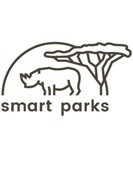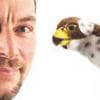HWC Tech Challenge: Smart Parks field update
 Smart Parks
Smart Parks
25 March 2019 12:00am
Survey: Technology for Mitigating Impacts to Biodiversity
21 March 2019 5:32pm
WILDLABS Virtual Meetup: Low Cost, Open-Source Solutions
18 March 2019 12:00am
AudioMoth 2.0 Development
17 March 2019 2:44am
AudioMoth user guide
27 February 2019 9:35pm
14 March 2019 1:52pm
Hi again,
I agree; it's very important that everyone is able to contribute to the guide. Thanks for taking the lead on that, Akiba. To that end, I just made my GitHub repo publicly editable, so please feel free to add to it if you want to use a GitHub repository.
However, a Google Doc would be much easier for the general public to contribute to. If you choose that route instead, please use whatever you want from my repository. :-)
I personally like to use the guide as a single document instead of a Wiki. It's easier to read through, and since everything is on the same page, you can just CTRL+F to find a specific word or section. Also, it's helpful to be able to download it as a .pdf, or print it out and refer to it in the field.
Tessa
14 March 2019 3:43pm
Hi Tessa.
Thanks and also thanks for being so generous with your work :)
Regarding the format, how do you all think if we have a single document and a wiki? I could handle the single document if David wanted to do the wiki. One potential issue would be synchronization, but since many wikis keep a change list, perhaps we can schedule periodic document updates based on the wiki changelists. We can also maintain a document changelist in case the changes need to go in the other direction.
Any comments or suggestions?
Akiba
Tech for Rewilding Conflicts
22 November 2018 10:54am
13 March 2019 12:34pm
Hi Laurens,
Would be great to connect. Sent you a mesage directly.
Best,
Vance
14 March 2019 2:48am
Interesting conversation. From Tech side there is solution which we are workign on.... Its low cost and tech heavy. Attaching Idea
Toughts please.
14 March 2019 12:21pm
Cool idea Ashwan. Looks similar to the virtual parks idea that Laurens is leading. Have you seen it? Also check out rewilding.io and get an entry in to the contest!
Great introduction to IoT
10 December 2015 5:13pm
14 March 2019 7:25am
The talk is really interesting and I agree that it's important to think about the bigger issues of the world and then use technology as just one of the tools to try and tackle them.
IoT Roots are Actually in Habitat Monitoring
14 March 2019 5:59am
Internet of Elephants
4 January 2016 12:01pm
28 August 2017 10:01pm
Love the name. I am doing work around sensor networks for conservation. You have grown quite the team. I am also leavine the corporate IT world as a software engineer to start a conserve/agri tech start-up. I would like to keep it as a social enterprise as well.
14 March 2019 5:56am
Will your startup be involved in sensor networks for conservation? I'm very interested. Currently we create sensor networks for developmental infrastructure and agriculture and am curious about using it for wildlife monitoring and conservation.
Welcome to the WILDLABS.NET IoT Group!
15 December 2015 7:38pm
21 December 2015 4:57pm
Hi, everyone, I'm John Waugh. I manage the climate and environment program for a small but growing consultancy, Integra LLC, based in Washington DC. Another core area for Integra is information and communications technology for development, hence my interest in the intersection between technology and biodiversity conservation. I'm convinced that there's a bright future for the Internet of Things in the area of conservation, and I look forward to working with you to build a community of practice. It would be very helpful to me to hear your thoughts about what information is most needed. Should we have a directory of experts? Of vendors of hardware and software? Or documentation of existing projects and the technologies being used? I'm sure all of these and more are in demand. I'd like to help get the ball rolling; what should our initial focus be? I'm looking forward to being in touch.
best
John
14 March 2019 5:28am
Hi everyone.
I'm Akiba and I'm an engineer by trade specializing in wireless sensor networks and communications. I generally work with groups like World Bank on technology for development and we are working with UNESCO and other organizations to put on an ICT4D (Information and Communications Technology For Development) conference in Japan later this year.
I've also started and run a communal farm which houses both farmers and techies and as the farm is expanding, we have found that we've been given a forest and part of a mountain to manage along with all its inhabitants. We are planning animal surveys and will also be studying very hard on forestry management. Wildlife conservation has been an interest of mine for a while and I'm looking forward to working and collaborating with people on WildLabs in that realm.
Akiba
Have your say - take the WILDLABS Community Survey 2019
13 February 2019 6:04pm
12 March 2019 11:43am
Hi everyone,
So a quick update on this. We've had 100+ responses so far which lots of really interesting feedback coming through. We're going to close this year's survey at the end of the month, so you still have time to add your perpsective to the mix.
In the meantime, I thought I'd share some of the early results we've had so you can see what trends are coming through. I'll share the results in seperate comments in this thread over the next few days so it's not too overwhelming. I'm very interested to hear any thoughts about these early results - do you agree with them, are they unexpected?
The first one is about the functionality you want us to concentrate on adding to WILDLABS in the next 12 months. From responses so far, the highest priority is for what I'd classify as tools for collaboration. There are a lot of things you'd classify as nice to have, but hands down you'd prioritise new tools that allow you to share information/updates about your work, and make it easier to find people with skills you need or projects that need your skills. are what what you want to see asap.
Conversely, you're not particularly interested in knowing more about how things you post here are doing (e.g. personal analytics or a badging system). This is interesting - I suspect it's because it doesn't really matter how many people see what you post, the main thing that matters is the practical outcome and whether you get the answer or connection that was the reason behind you posting.
What do you think, do the trends about functionality priorities agree with what you think?
Steph

Update on Arribada's Low Cost Open Source Sea Turtle Tag
 Rachael Kemp
Rachael Kemp
12 March 2019 12:00am
ICCB 2019 Conservation Technology Awards
 Microsoft
Microsoft
12 March 2019 12:00am
ICCB 2019 Travel Grants – Applications Open
 Society for Conservation Biology
Society for Conservation Biology
11 March 2019 12:00am
29th International Congress for Conservation Biology (ICCB 2019)
 Society for Conservation Biology
Society for Conservation Biology
11 March 2019 12:00am
Advice for an in-situ Audio-Visual system for recording at a nest site
9 February 2019 6:19pm
25 February 2019 6:37pm
Hello Carlos and Sam
That book on "CCTV for Wildlife Monitoring" looks excellent. Although it is somewhat off at a tangent of my actual work this looks way too useful not to have. There are cheaper second-hand copies on Abebooks and eBay and also on sale at NHBS, £20.98 incl. UK P&P (https://www.nhbs.com/cctv-for-wildlife-monitoring-book).
An interesting interview with the author, Susan Young: https://blog.nhbs.com/author-interviews/interview/cctv-for-wildlife-monitoring-an-interview-with-susan-young/
Meanwhile, I have come across a research project by the author of that book using technology that looks very close to what Sam is trying to do: "CCTV Enables the Discovery of New Barbastelle Vocalisations and Activity Patterns Near a Roost - We monitored a barbastelle maternity roost for four months using a portable CCTV system, time synchronised with ultrasound recorders."
See more here: https://www.researchgate.net/project/Using-CCTV-to-link-vocal-repertoire-with-behaviour-in-bats
If the above does not do it, I think you should contact the author and get her advice on what would be a suitable setup for you. That's what I meant in my earlier post about maximising use of previously developed solutions. It will just save you a lot of messing about, especially if you are not a technical expert yourself.
I hope this is of some use. Do post an update when you have worked out what equipment to use.
Good luck,
Joachim Neff
6 March 2019 7:42pm
Hello Sam
I have now received the book on "CCTV for Wildlife Monitoring" (see my earlier post for more details) and it is as excellent as it looked online. If you can spare £21 then I would suggest you get a copy yourself.
The book is written for those without much technical background and the case studies are very detailed with equipment lists and setup details. I have not read the entire book but as far as I can see there are no examples described specifically with synced audio. However, all the case studies and detailed comments on what to watch out for (pun intended) should give you a lot of help in working out what you need for your project.
Good luck,
Joachim
8 March 2019 2:44pm
Joachim and Carlos,
Thank you both very much for all your help so far with this problem, all of your input is very constructive. I have had look into the CCTV tech and also that researchgate link, and both have provided me with a few more options. At the moment I am organising a visit to one of the "hackerspaces" near me, to see if anyone can give me some hands-on practical advice, mainly about a suitable power supply solution (as lots of inputs running and recording continuously will reduce the time it can be in-field substantially based upon a standard, small size power supply, as I understand it). I will let you both know when I have managed to develop a prototype, but this may take a month or two as I need to first order a starter kit for Raspberry Pi or Arduino, get my head around the basics, and also contend with my other work. I will be sure to let you all know if I make any headway!
Best wishes,
Sam
Conservation Hackathon success stories
6 March 2019 8:14pm
#Tech4Wildlife Photo Challenge: Our Favourites from 2019
3 March 2019 12:00am
Real-time audio monitoring
19 February 2019 10:42am
22 February 2019 2:33pm
Hi,
What you're asking, is it conceptually like turning on the mic on your PC and doing something with the output from the sound card? Instead of digitising the sound it's possible to do some kind of monitoring in the analogue domain. It sounds like an interesting problem, tell me more!
Thanks.
1 March 2019 8:17am
What frequecy are you looking to record, how long does the mic need to run for, what is the distance between the microphone and the "listening" site? As (unless I've missed something) an off the shelf radio microphone does exactly that job.
Arribada Initiative Update: Testing our prototype thermal cameras with elephants in India
 Arribada Initative
Arribada Initative
1 March 2019 12:00am
SCB ICCB 2019 - travel awards open now
7 February 2019 9:52pm
28 February 2019 5:01am
ICCB 2019 Travel Reimbursement Awards – Applications Open
The deadline to submit an application for ICCB 2019 Travel Awards is 15 March at 11:59 p.m US Eastern Standard Time. All applications must be submitted online.
ICCB Travel Awards will help off-set some of the awardees’ expenses to attend SCB's 29th International Congress for Conservation Biology (ICCB 2019) in Kuala Lumpur, Malaysia from 21-25 July 2019.
The availability of travel reimbursement funds is determined by the amount of money raised through sponsorships and the amount provided to the awardees will vary based on location, need, and priority status.
Applicants need to meet one of the following essential required applicant type:
Full-time graduate (Master or PhD level equally considered), or undergraduate, students currently enrolled at a university based in a developing country (this criterion applies regardless of citizenship). Priority will be given to graduate students over undergraduate students based on a 70/30 ratio.
Early career researchers based in a developing country and whose salary does not come directly from sources in developed countries. This criterion applies regardless of your country of citizenship. An early career researcher is anyone employed and conducting research within three years of having completed a Masters or a PhD degree.
Staff from NGOs based full-time in a developing country. Priority will be given to those travelling internationally on a 70/30 ratio.
To apply for travel awards please click here.
Join the 4th annual #Tech4Wildlife Photo Challenge!
25 February 2019 12:00am
Bioacoustics for Ecologists: Hardware, Survey Design and Data Analysis
 PR Statistics
PR Statistics
25 February 2019 12:00am
Conserving the Sumatran and Javan Rhino
15 January 2019 7:39pm
23 January 2019 10:12pm
Hello Claire,
Engineer at Wild Me here. We would love to start a conversation about a Wildbook for rhinos.
Lets talk about citizen science and computer vision for identification possibilities. I'm curious about your current data set and the identification tools you are using as a starting point. I'm happy to talk here, or you can email our team at [email protected].
24 February 2019 1:28am
Hi Claire,
At the BearID Project, we are working on a similar problem for brown bears. We are currently using machine learning methods developed for human facial recognition (like Google FaceNet). We got some ok initial results, but now we are running up against small data issues. The method for human faces were trained with millions of images of hundreds of thousandes on individuals. We have a few thousand images of about a hundred individuals. We plan to investigate other methods in the future.
It will be great to keep in touch to see what methods you will be using.
Ed
24 February 2019 1:38am
Hi Colin,
At the BearID Project, we are working on a similar problem for brown bears. We are currently using machine learning methods developed for human facial recognition (like Google FaceNet). We got some ok initial results, but now we are running up against small data issues. The method for human faces were trained with millions of images of hundreds of thousandes on individuals. We have a few thousand images of about a hundred individuals. We plan to investigate other methods in the future.
The last time I talked to WildMe, the identification algorithms were based on matching unique patterns. We didn't think this would be directly applicable for brown bears as they don't have a lot of clearly identifiable markings. Have you developed other identification algorithms?
Ed
AudioMoth - Big data software?
26 September 2018 12:02pm
24 October 2018 5:55pm
AH, okay. Yes, if something goes wrong writing to the SD card during a recording, the file won't be closed, and so the file size won't be updated. Let us know if you get any zero length files in †he future since it shouldn't happend. We have another release of the firmware and configuration app coming out in a couple of weeks that makes the routine which writes to the SD card a bit more robust if something goes wrong, uses human readible long file names, and also adds local time to both the configuration app and the resulting time stamps. Alex
21 December 2018 10:55pm
Hi David,
Kate Jones suggested trying our their Bat Classifier tool - deep learning tools for bat acoustic signal detection. We've quite a few members here who worked on it if you've got questions (@Rory_Gibb, @snewson, @robin_freeman as a start)
We have a method for finding bat calls that is super quick, free and all code is open source https://t.co/52FPZHLyQU
— Kate Jones (@ProfKateJones) December 21, 2018
Steph
22 February 2019 1:28pm
How about using Kaleidoscope and the cluster analysis tool? Works fine, and is super-quick..
Ta, Carlos
UK Southwest bat conference
15 January 2019 9:21am
22 February 2019 12:43pm
I'll be there - on the Wildlife Acoustics stand...
Please come and say hi!
Carlos
Upcoming tech4wildlife gatherings
14 February 2019 12:26pm
20 February 2019 3:43pm
Hi Vance
We are organising a Conservation and Technology Conference to take place at the University of Nottingham on Friday 6 September 2019. https://www.bats.org.uk/our-work/conferences-symposia/conservation-and-technology-conference
This one day conference will explore conservation and technology for all wildlife (not just bats!)
It aims to:
- bring together wildlife conservationists, ecological consultants, researchers and technology experts to network and share knowledge/products/techniques.
- showcase new technologies, new applications of existing technologies and new developments in best practice
The programme will be talks-based and feature a mix of talk lengths, including some lightning talks to showcase new technologies, longer talks for projects/technologies where there are more results to discuss and a key note talk – speaker to be confirmed soon.
The Programme Selection Team would like to invite the submission of abstracts, particularly for projects using new technologies to support wildlife conservation or projects using existing technologies in new ways for conservation. We are keen to develop a diverse programme, featuring speakers working with a range of wildlife and technologies.
Abstracts should be submitted as a Word or pdf document and emailed to me: [email protected] by 15 March 2019 with the title Conservation and Technology Conference Abstract Submission.
There will also be posters on display at the Conservation and Technology Conference, please email mewith a short abstract or brief overview of the project/topic you would like to present a poster on: [email protected]
Please do share this with any friends or colleagues that you think might be interested or drop me an email with any questions, suggestions of speakers or projects you think might be interested or if you'd like to register your interest in the event.
Best wishes
Naomi
22 February 2019 8:49am
Fantastic. Thank you Naomi. Will share and try to put together an abstract to submit.
Responsible AI for Conservation?
11 February 2019 6:22pm
21 February 2019 8:17am
Hi Jaishanker
Absolutely - the overlap between image-based and sound-based analyses is increasing, and consistent terminology will no doubt help us share info.
Are you using ML in SODA for automated identification of sounds? If so, how are you determining if a given classifier is performing well?
Thanks
Ollie
21 February 2019 11:08am
Hello Ollie,
SODA is a recently launched suite. It is in the development phase. We have with us call libraries with multiple (40+) calls for 10- 12 species of birds. A research scholar is on the job for classifying at the species level.
Our interest is equally on separating the different sonic components (as stated in https://www.wildlabs.net/community/thread/666). It is different from the link shared in my previous reply. This is where I see the confluence of objectives.
As a TEAM, I believe, we can address the individual objectives faster.
regards
jaishanker
21 February 2019 9:13pm
Hi Ollie,
Great article, thank you! I mostly work with responsible AI in other contexts, at Doteveryone.org.uk and the Trust & Technology Initiative at the University of Cambridge, so don't have much to offer here, although I am very interested in the topic. I appreciate your point that many of the consumer data issues highlighted in the 'popular' responsible AI discourse aren't relevant to conservation (some of us have been gathering 'responsible tech' / 'ethical tech' resources in a shared doc, and there's essentially nothing there for conservation specifically - https://docs.google.com/document/d/1SN6hYeKe3eRK6x9D0Sr7GpCA4nirpyo3u68xG1A6NDs/edit ). However there might be some links with humanitarian data practices, which are touched on by the Responsible Data folks at https://responsibledata.io and https://www.fabriders.net/data-literacy-consortium/ or in this recent article https://asecondmouse.wordpress.com/2019/02/20/instability-forecasting-models-seven-ethical-considerations/
Best,
Laura
Help Offered: Technology Professional (Software) Looking to Help
21 February 2019 4:18pm
Technology Professional Looking to Help
21 February 2019 4:09pm

















14 March 2019 10:08am
That also sounds like a good idea :)